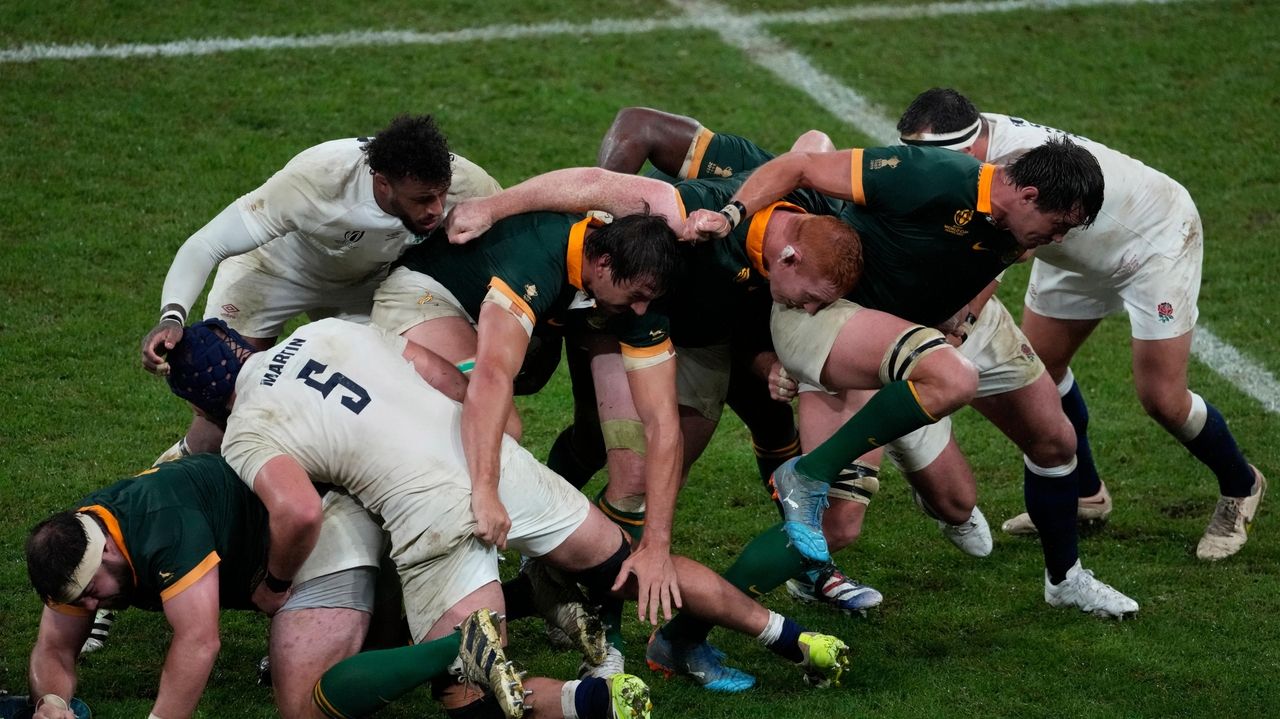PARIS — The long-awaited new global men’s competition outside of the Rugby World Cup was approved on Tuesday to start in 2026.
World Rugby chairman Bill Beaumont hailed it as “an historic moment for our sport that sets us up collectively for success.”
But South America Rugby president Sebastian Pineyrua warned before the vote: “It’s the death of rugby.”
Also, World Rugby approved 24 teams for the 2027 Rugby World Cup in Australia, the first expansion of the tournament since 1999. A reduced four-week pool stage will lead to a new knockout round of 16. Where the four new teams will come from is to be determined.
The new men’s competition, sometimes called the Nations Championship, Nations League or World League, has 12 teams.
It will pit the Six Nations sides — England, France, Ireland, Italy, Scotland, Wales — against the Rugby Championship sides — Argentina, Australia, New Zealand, South Africa — plus two teams tipped to be Japan and Fiji.
They will meet in the usual July and November test windows every two years from 2026.
A second division of 12 teams — yet to be determined — run by World Rugby will start in 2026, with promotion and relegation from 2030.
The annual Pacific Nations Cup will be expanded again next year to include Japan, Fiji, Samoa, Tonga, the United States and Canada. The last time all six featured was in 2019, and before that 2015.
South America Rugby previously said it turned down an invite to join the Pacific Nations Cup because it expected the competition’s value to diminish again when Japan and Fiji are tipped to leave for the new Nations Championship in 2026.
All of the tier two teams at the ongoing World Cup in France begged for more matches with the tier one teams from the Six Nations and Rugby Championship to increase their competitiveness and level the playing field at rugby’s showpiece event.
World Rugby promised on Tuesday “a significant uplift in the number of crossover matches between unions in the respective…
Read the full article here

Leave a Reply